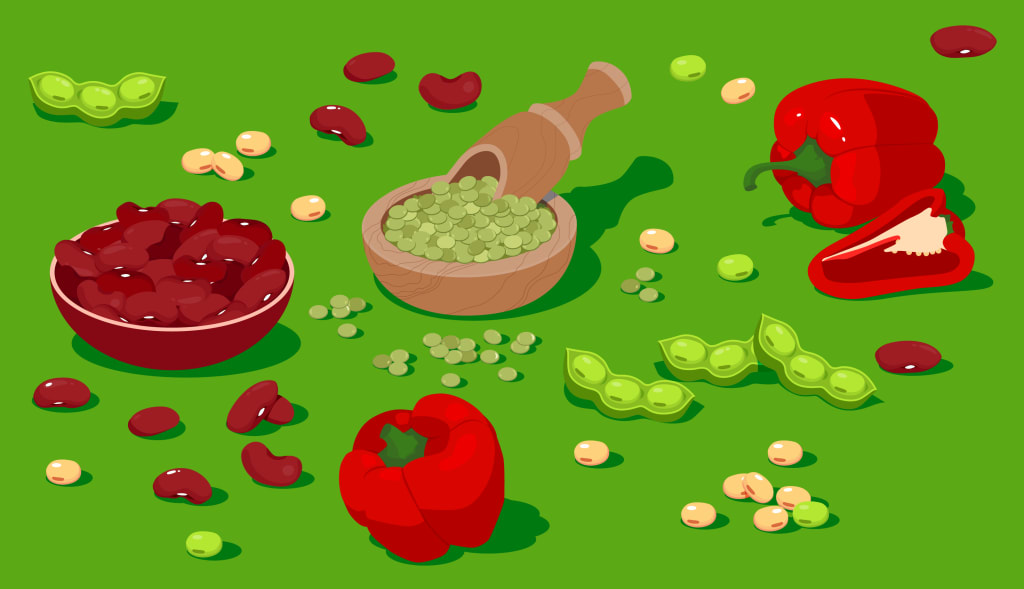Unmasking Common Food Myths: Debunking Nutrition Misconceptions
What food myths are you still believing?

In the era of information overload, it's easy to fall victim to common food myths and misconceptions that circulate in society. These myths often lead to confusion about what constitutes a healthy diet and can impact our overall well-being. In this enlightening article, we aim to debunk popular nutrition misconceptions, using real-life examples to separate fact from fiction. Join us on a journey of unraveling the truth behind common food myths, empowering you to make informed decisions for your nutritional health.
Myth: "Eating Carbs Makes You Fat": This pervasive myth suggests that consuming carbohydrates leads to weight gain. However, real-life examples, such as Lisa's experience of losing weight while including healthy carbs in her diet, challenge this misconception. The truth is that portion control, overall calorie intake, and the quality of carbohydrates consumed are more important factors in weight management than completely avoiding carbs.
Myth: "Eating Fat Makes You Fat": Contrary to popular belief, not all fats are detrimental to our health and weight. Real-life examples, like Sarah's journey of incorporating healthy fats into her diet and experiencing improved well-being, debunk this myth. Healthy fats, such as those found in avocados, nuts, and olive oil, provide essential nutrients and can contribute to a balanced diet.
Myth: "Eating Late at Night Causes Weight Gain": The notion that consuming food late at night automatically leads to weight gain is a widespread misconception. Real-life examples, such as Emma's habit of enjoying a balanced dinner closer to bedtime without negative effects, challenge this myth. It is the total number of calories consumed throughout the day and the quality of those calories that impact weight management, rather than the timing of meals.
Myth: "All Processed Foods are Unhealthy": While many processed foods can be detrimental to our health, not all processed foods should be avoided. Real-life examples, like John's discovery of minimally processed foods that fit into his busy lifestyle, debunk this myth. Some processed foods, such as frozen vegetables, canned beans, or whole-grain bread, can be nutritious and convenient choices. The key is to read labels and choose minimally processed options without added sugars, unhealthy fats, or excessive sodium.
Myth: "Skipping Meals Helps with Weight Loss": Skipping meals as a weight loss strategy is a common misconception. Real-life examples, like David's experience of feeling sluggish and overeating after skipping meals, challenge this myth. Regular, balanced meals provide the necessary fuel for our bodies and help maintain stable blood sugar levels. Opting for smaller, nutritious meals throughout the day can support weight management and prevent overeating.
Myth: "Detox Diets Cleanse Your Body": Detox diets promising to cleanse the body of toxins have gained popularity, but they are based on a misconception. Real-life examples, like Sarah's realization that a balanced diet and adequate hydration are more effective for overall health, debunk this myth. Our bodies naturally detoxify through the liver and kidneys, and a well-rounded, nutrient-dense diet is the best way to support this process.
Myth: "Eating Organic Foods Automatically Makes Them Healthier": While organic foods offer benefits such as reduced pesticide exposure, the assumption that they are inherently healthier can be misleading. Real-life examples, such as Lisa's decision to prioritize nutrient-dense, locally sourced produce over solely organic options, challenge this myth. It's important to focus on overall dietary patterns and include a variety of fruits, vegetables, whole grains, and lean proteins, regardless of their organic status.
By debunking these common food myths, we can make more informed choices about our nutrition. Remember, it's essential to rely on credible sources and scientific evidence when it comes to our dietary decisions. By unmasking the truth behind these misconceptions, we can embrace a healthier and more balanced approach to food.





Comments
There are no comments for this story
Be the first to respond and start the conversation.